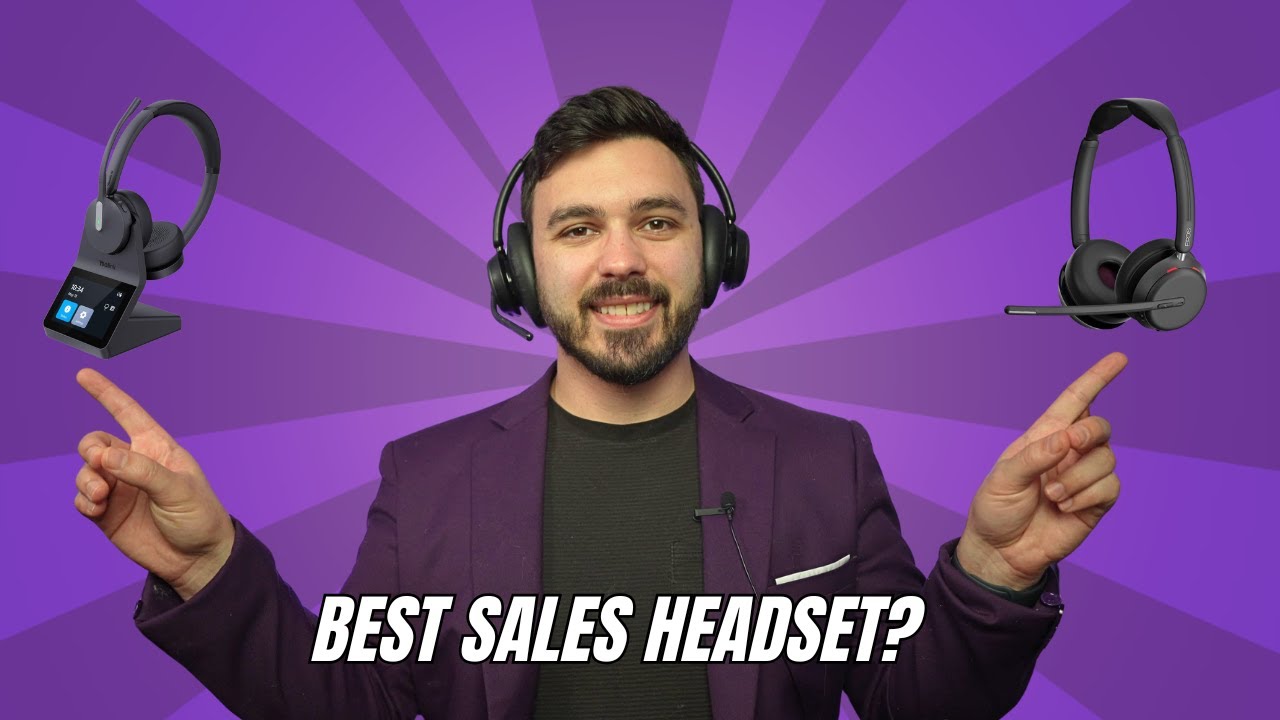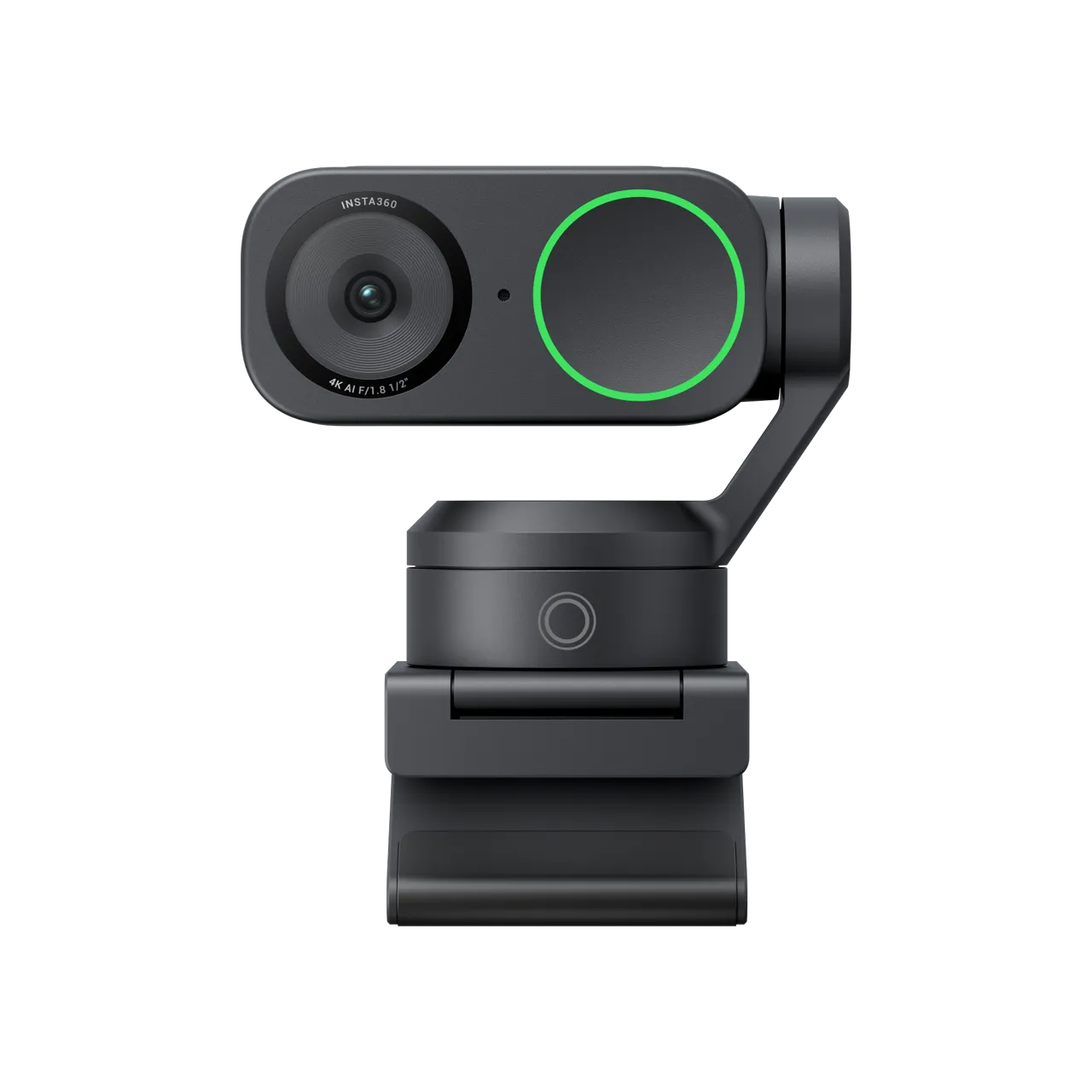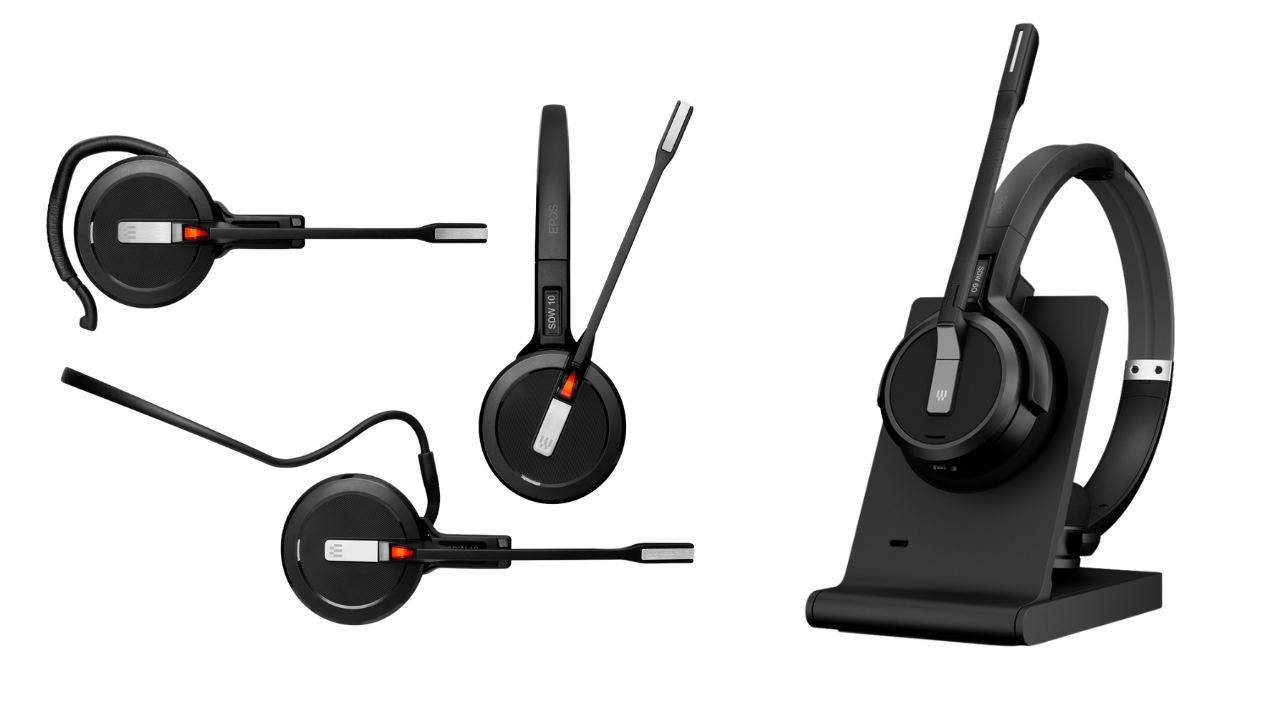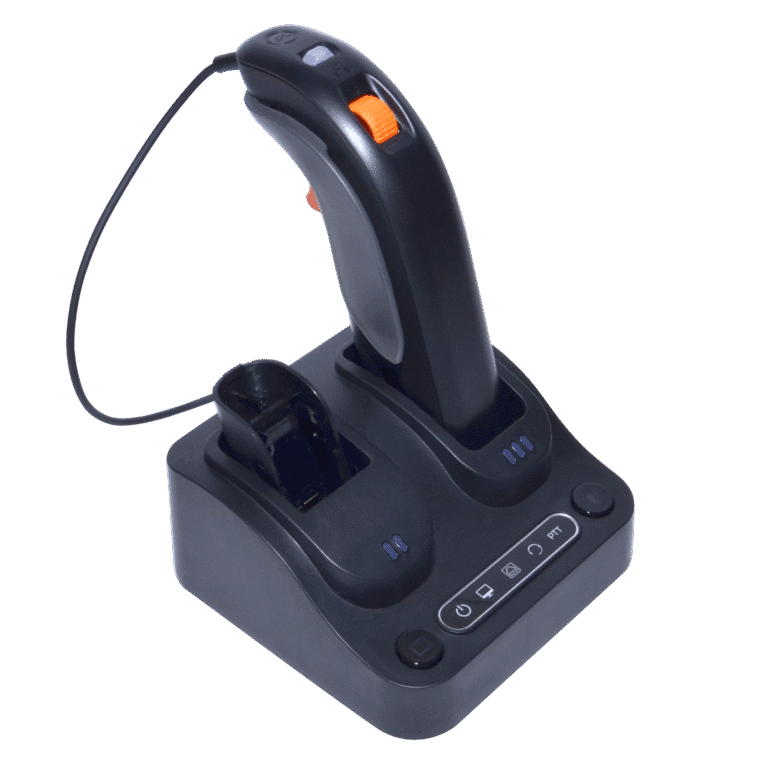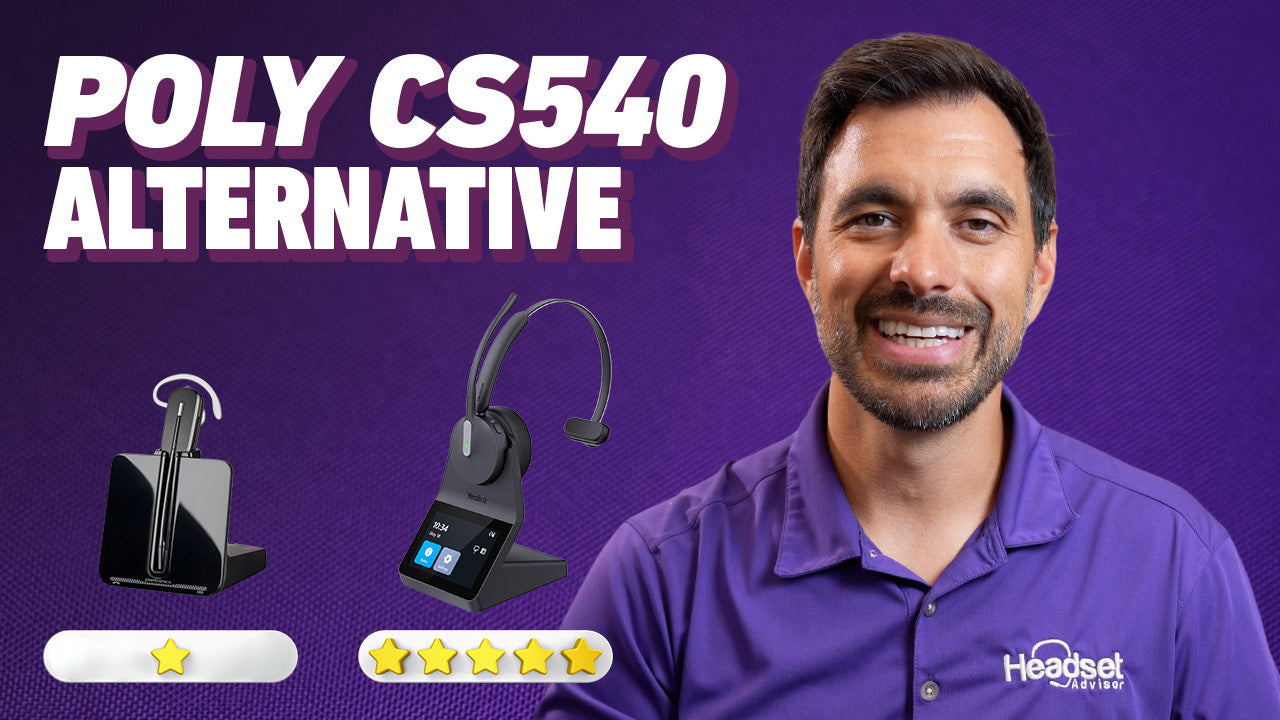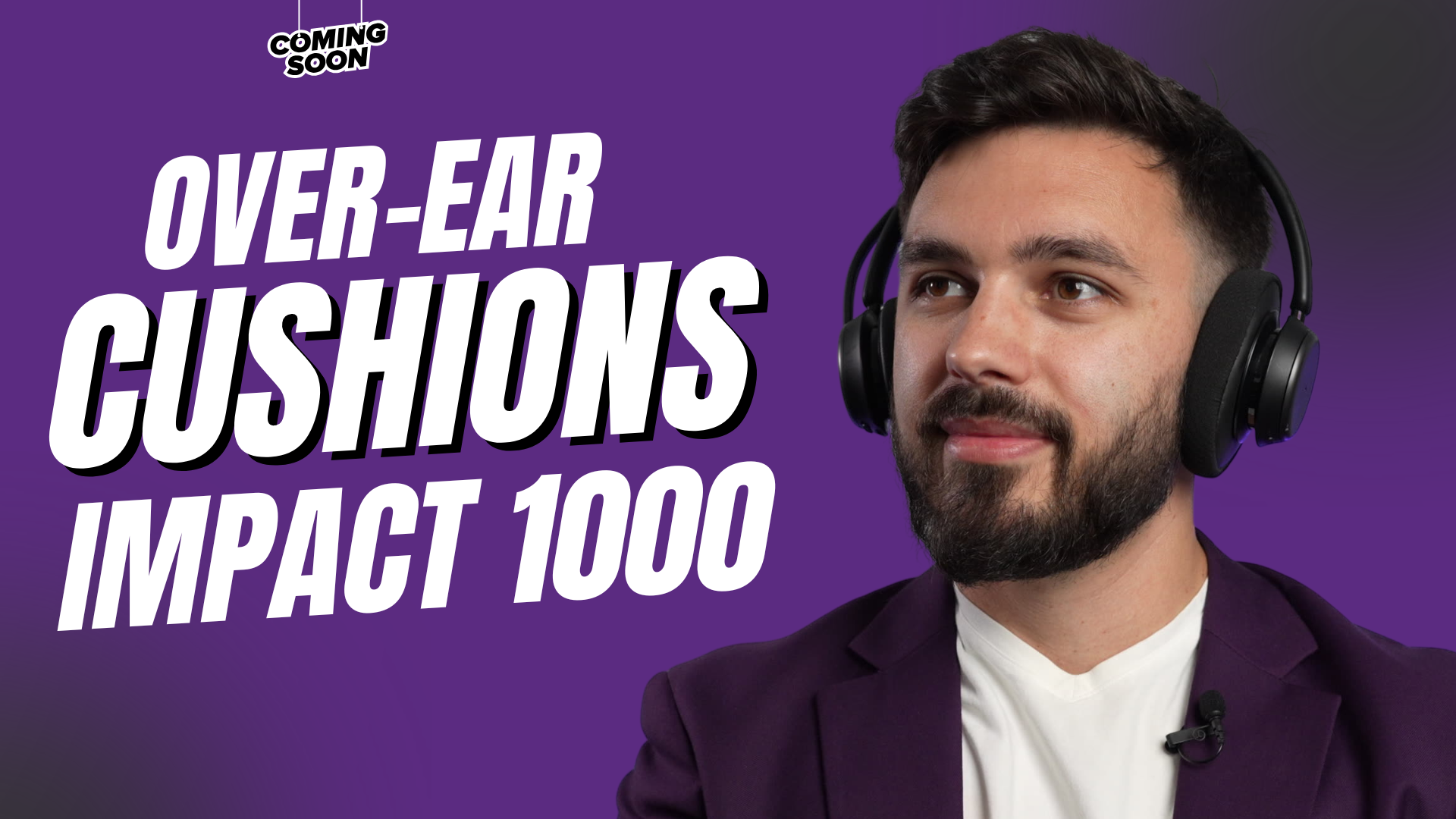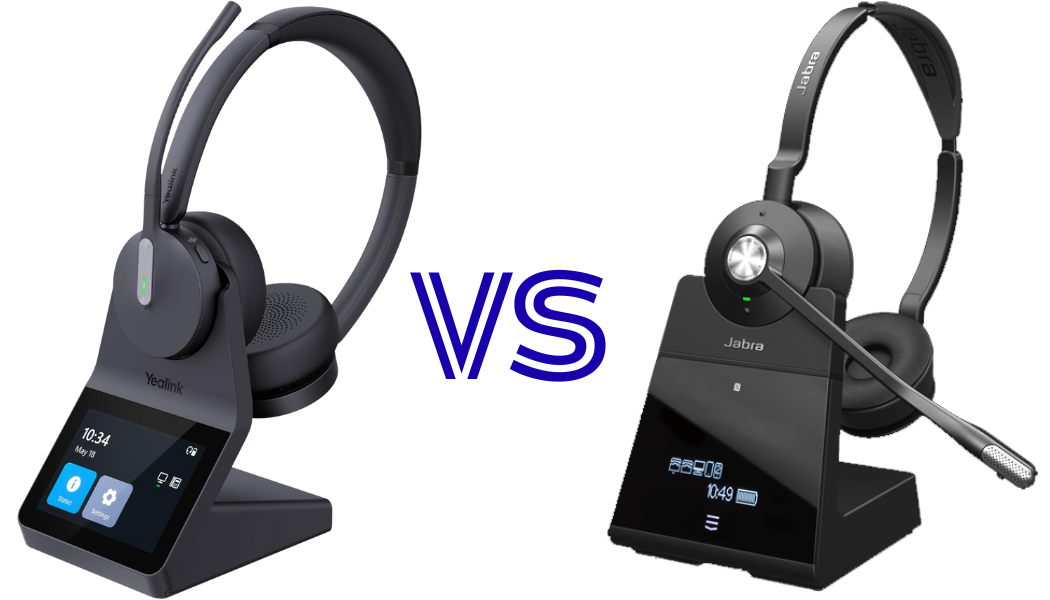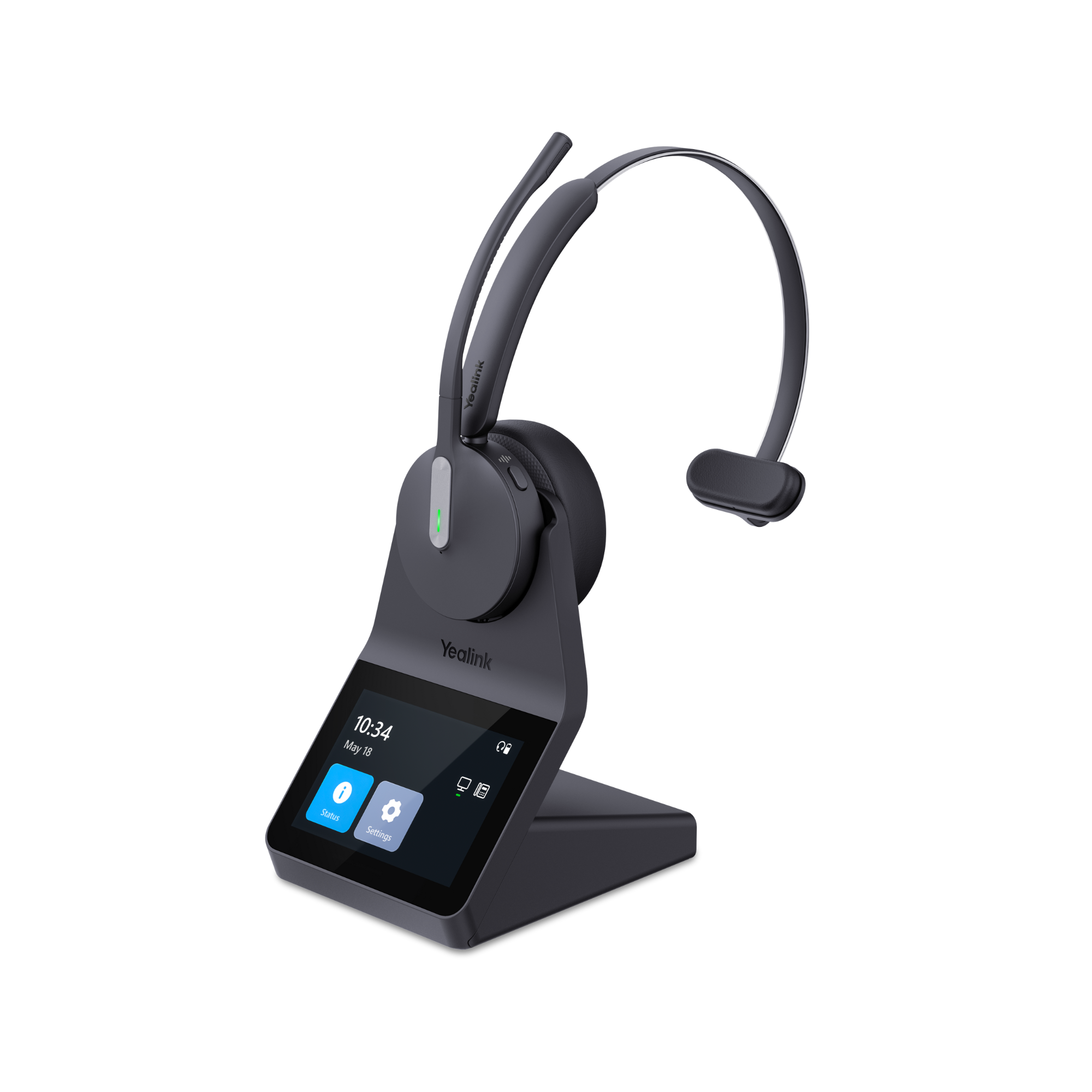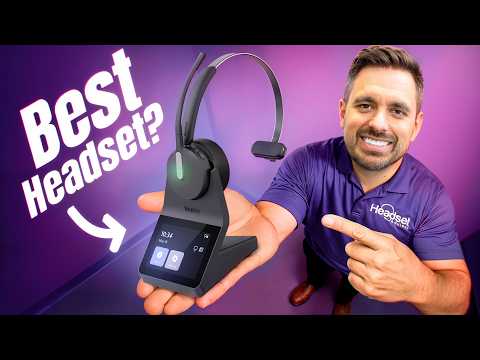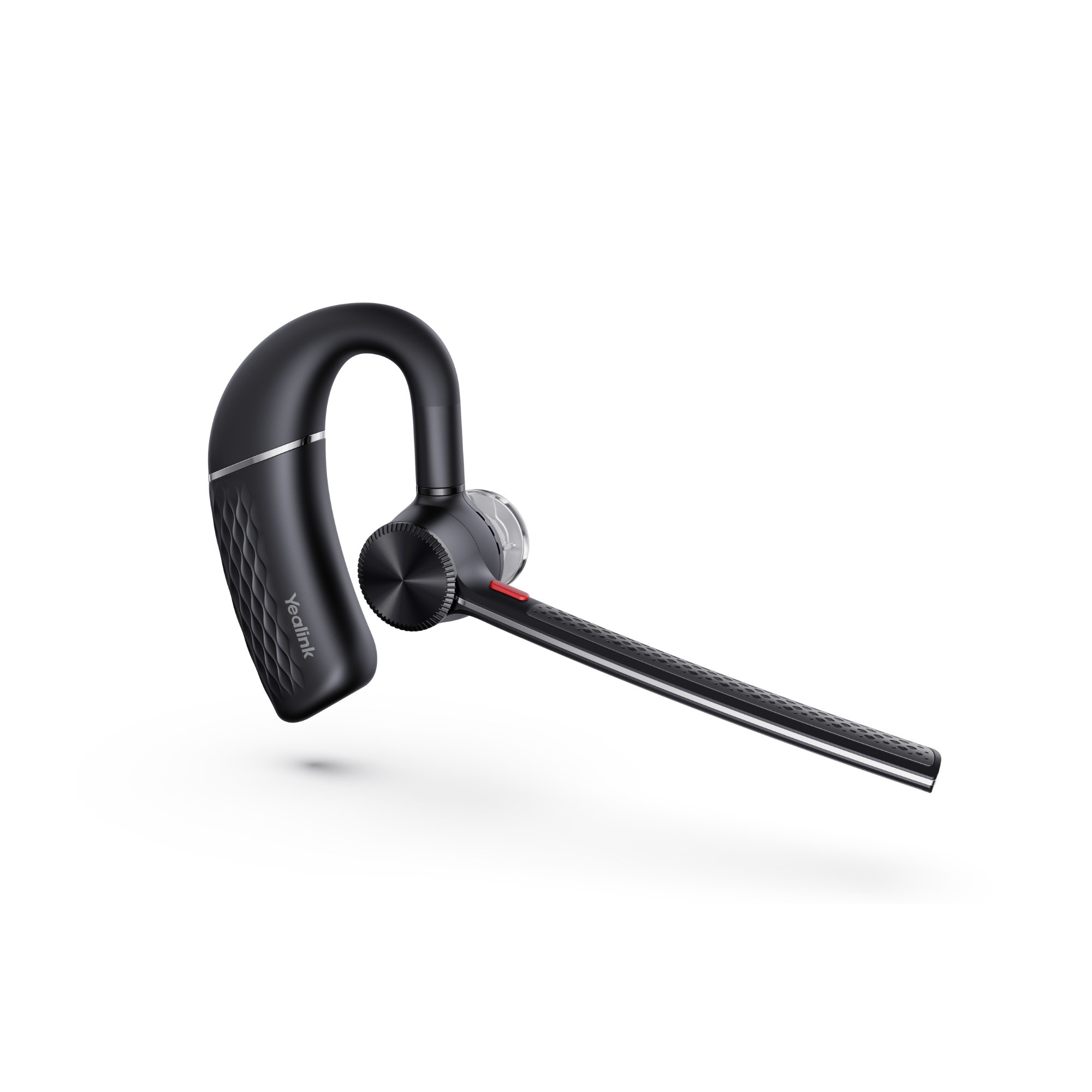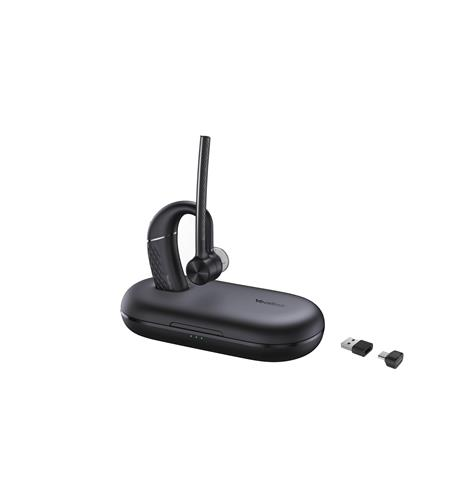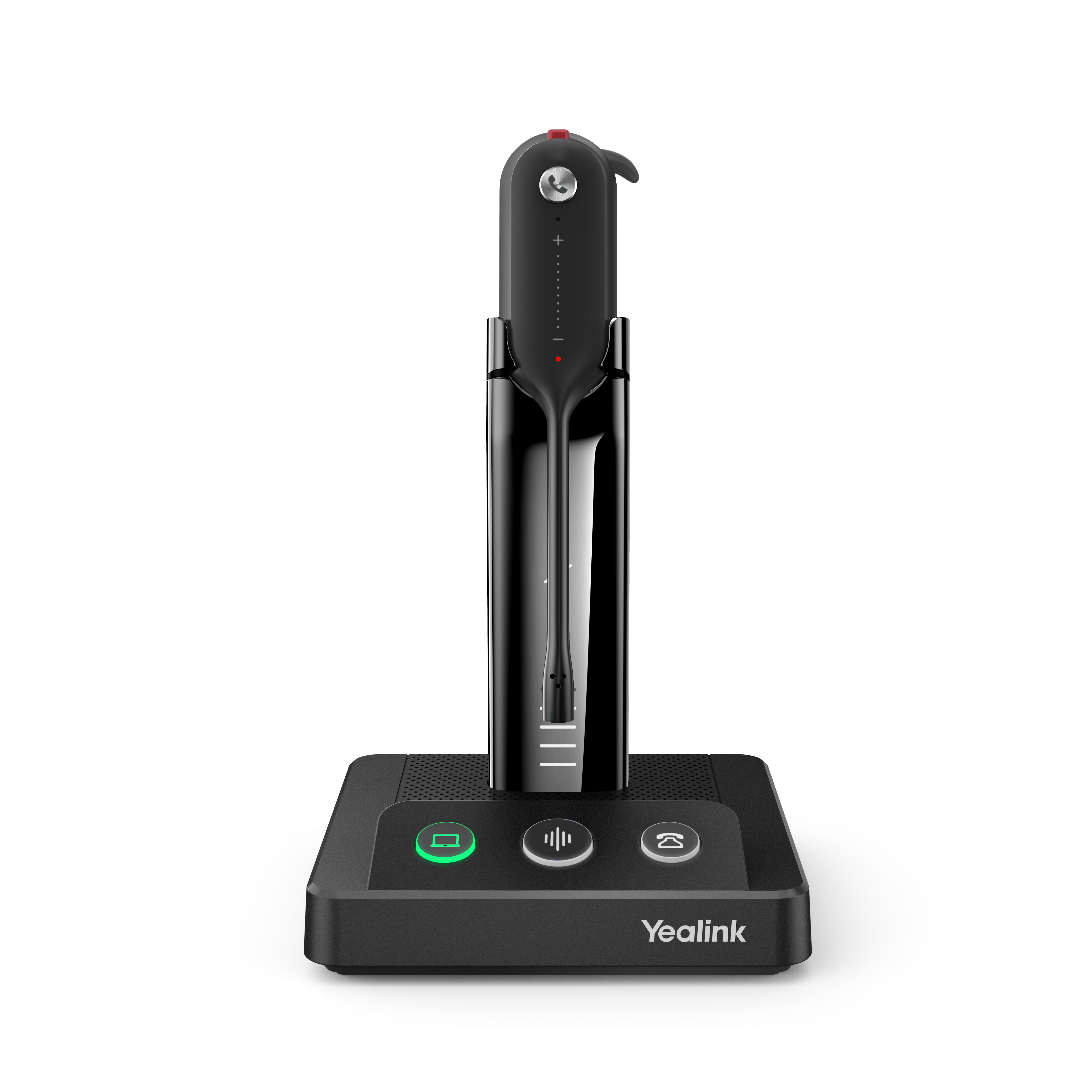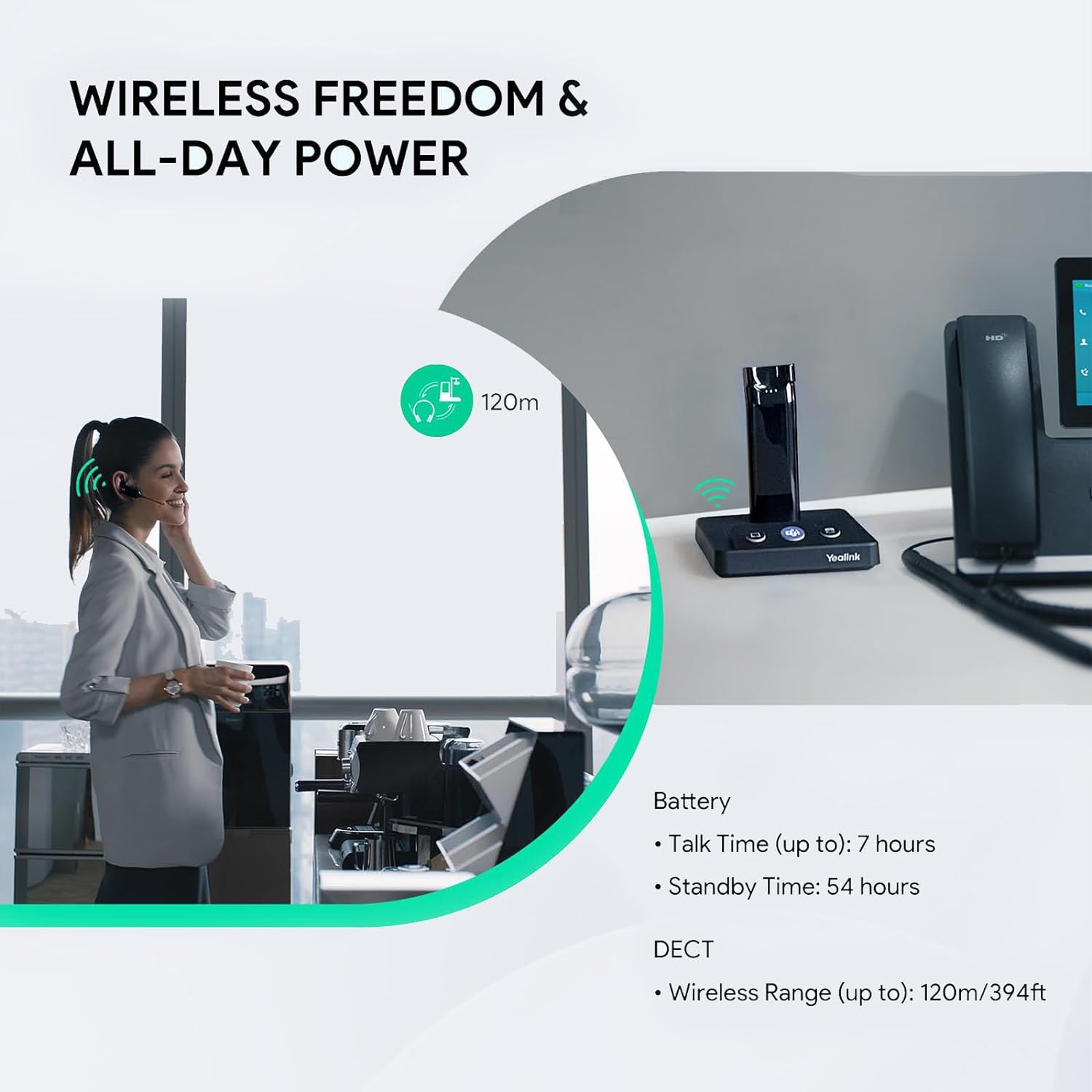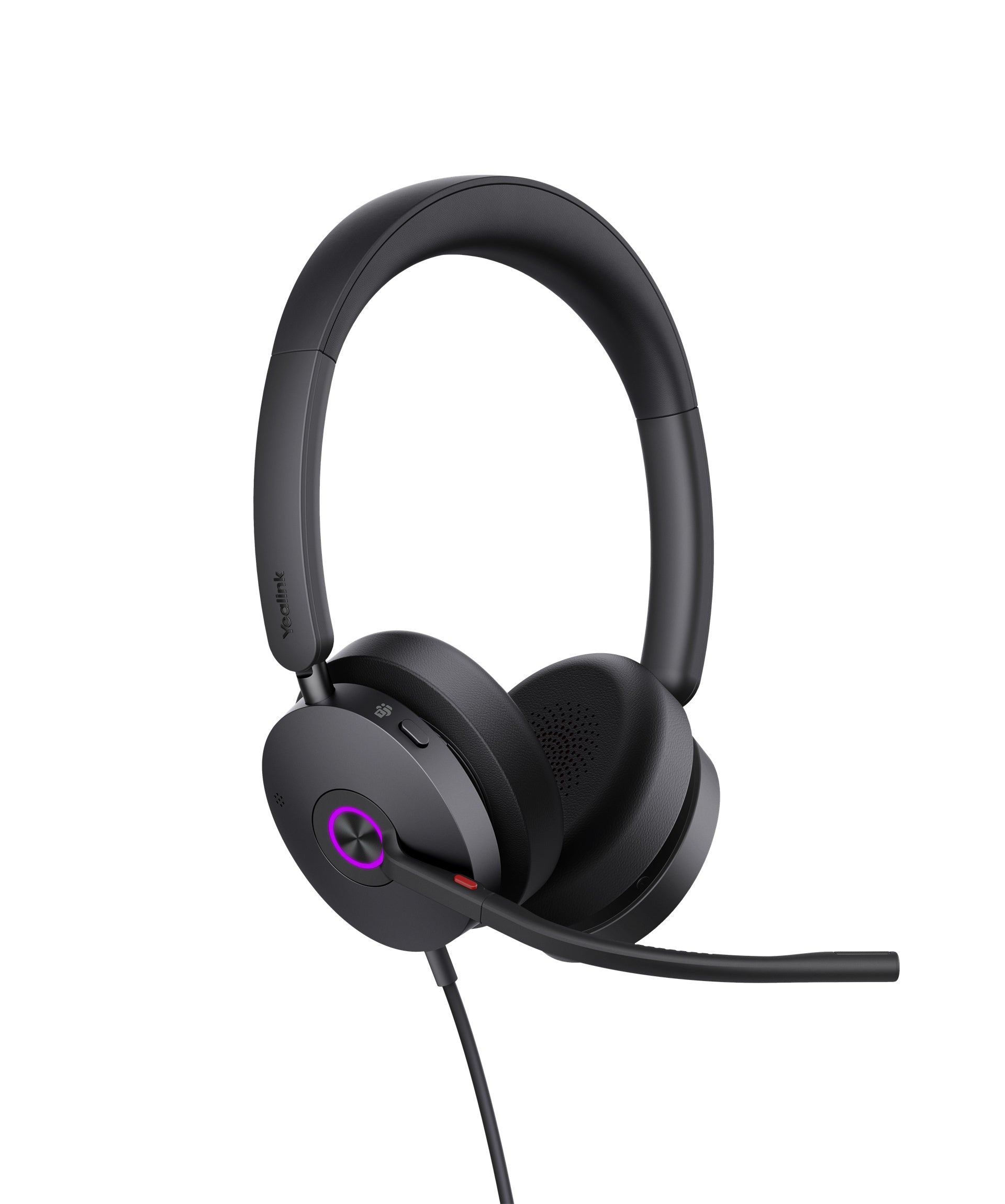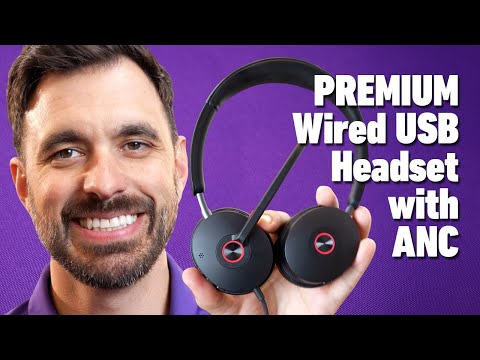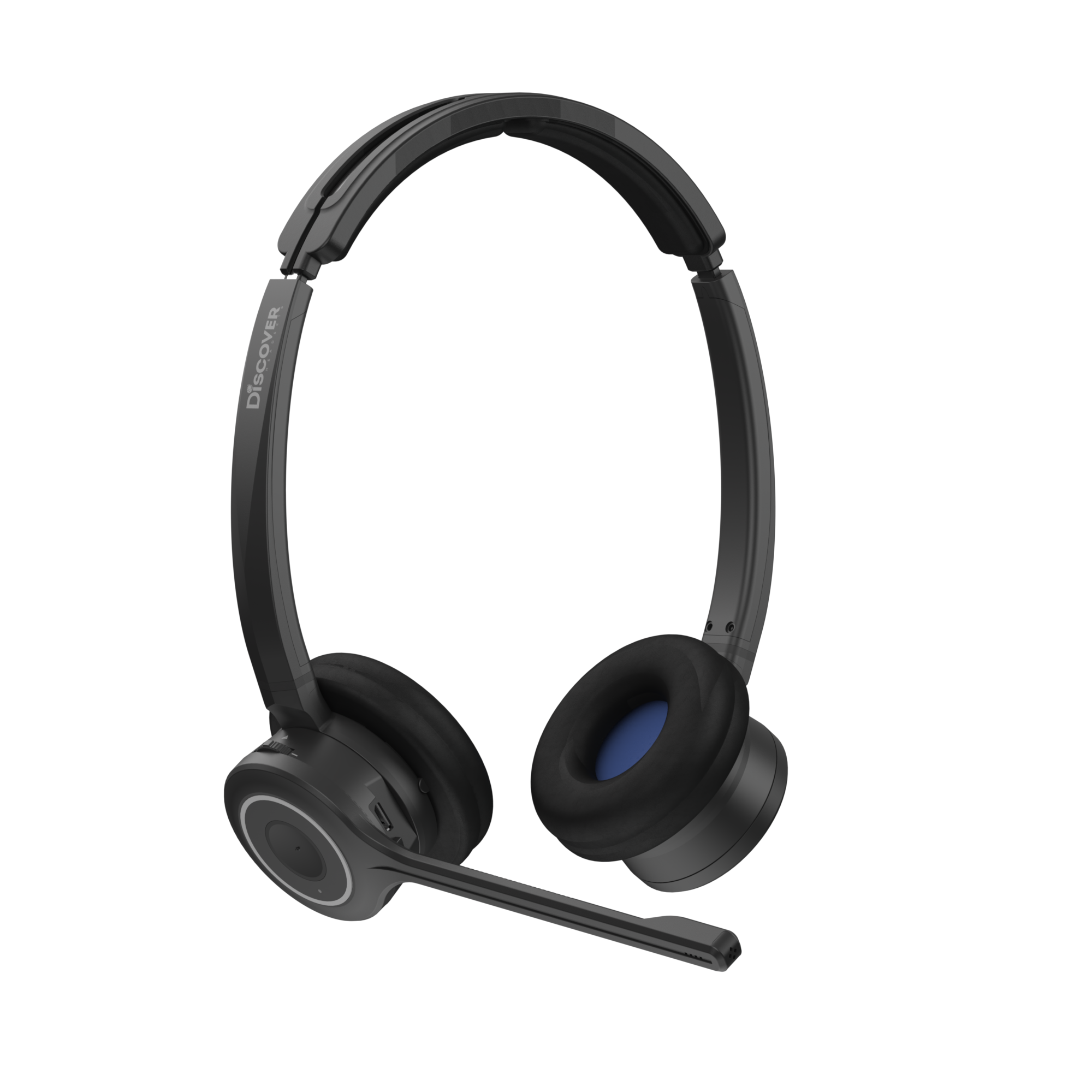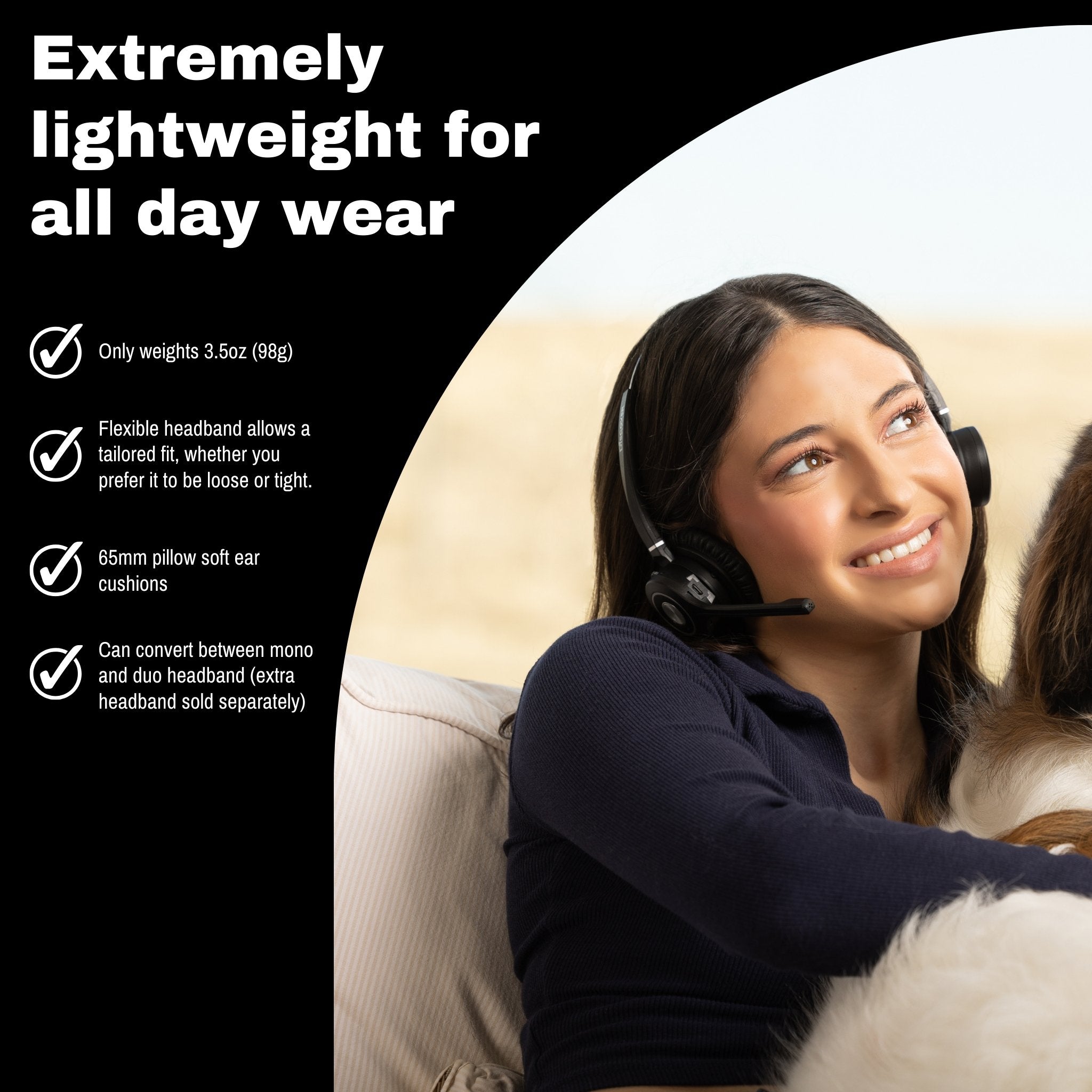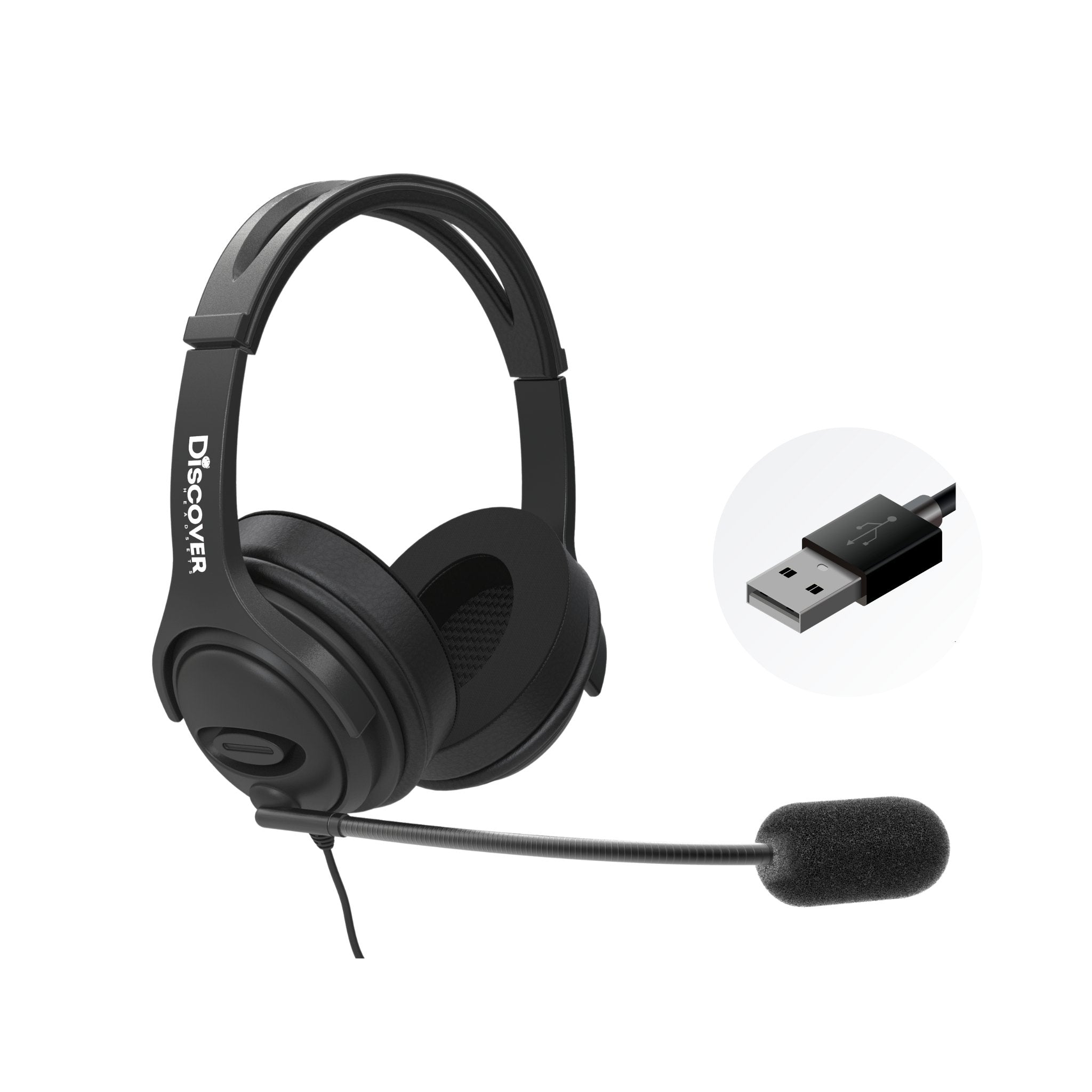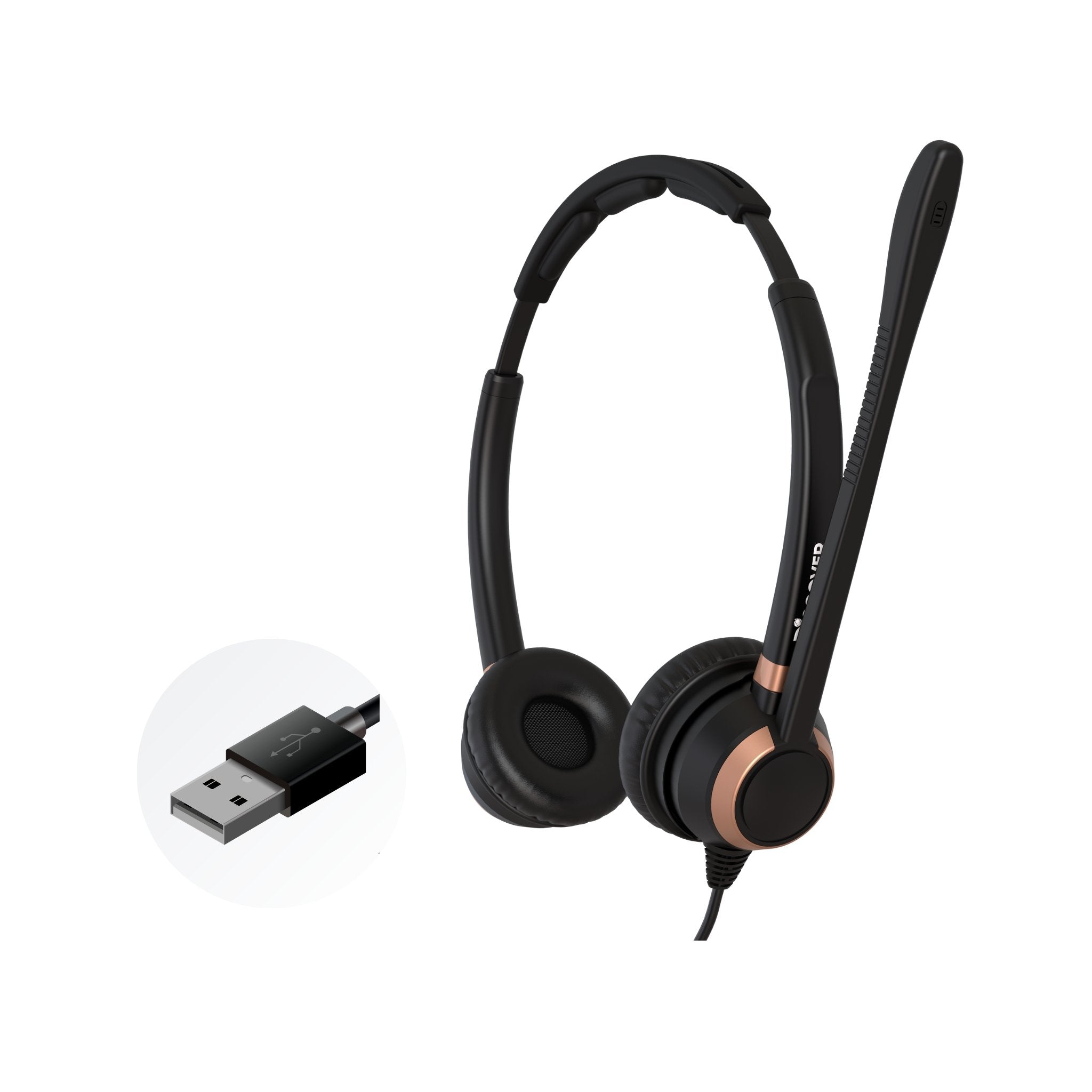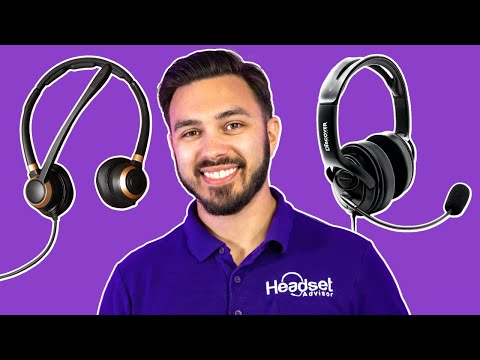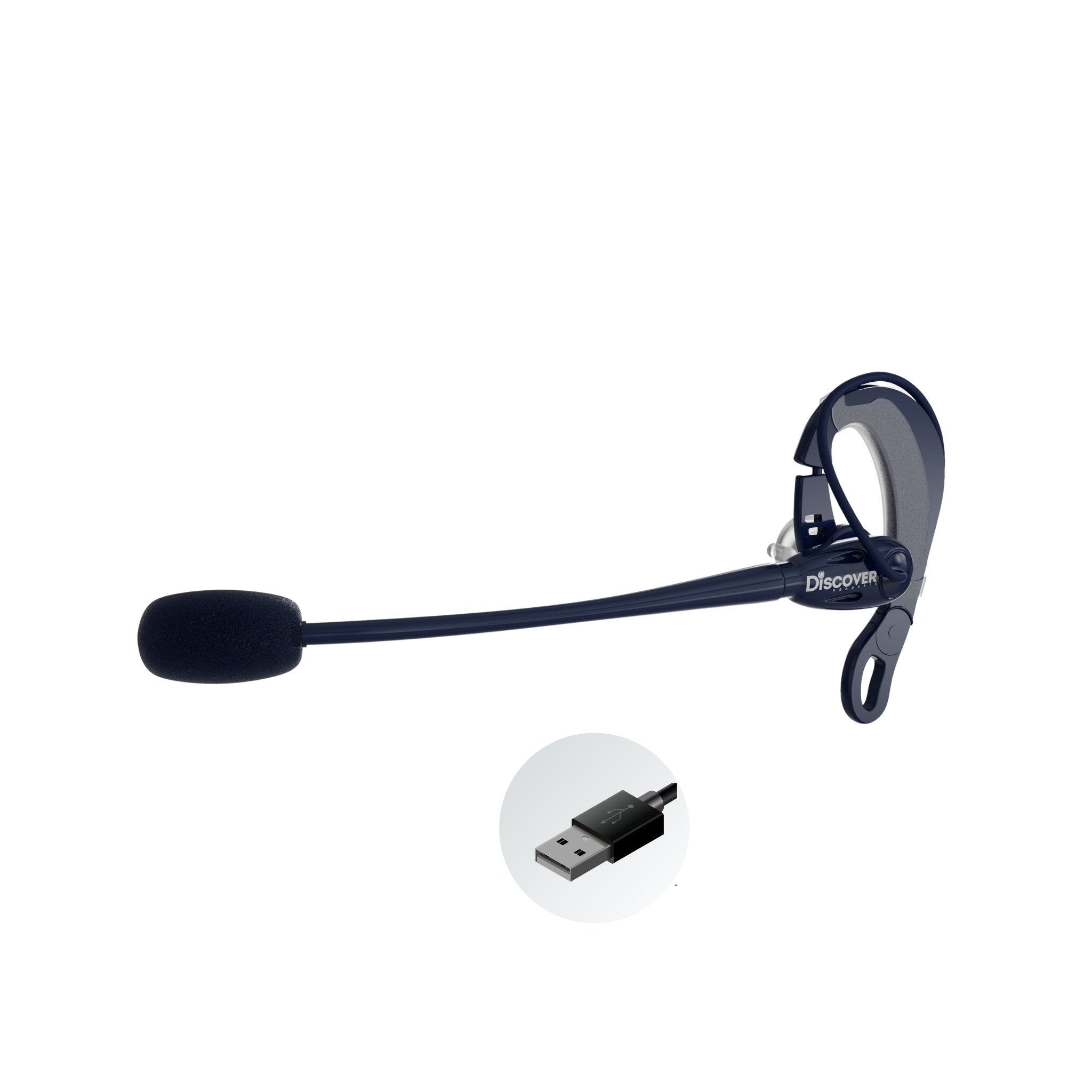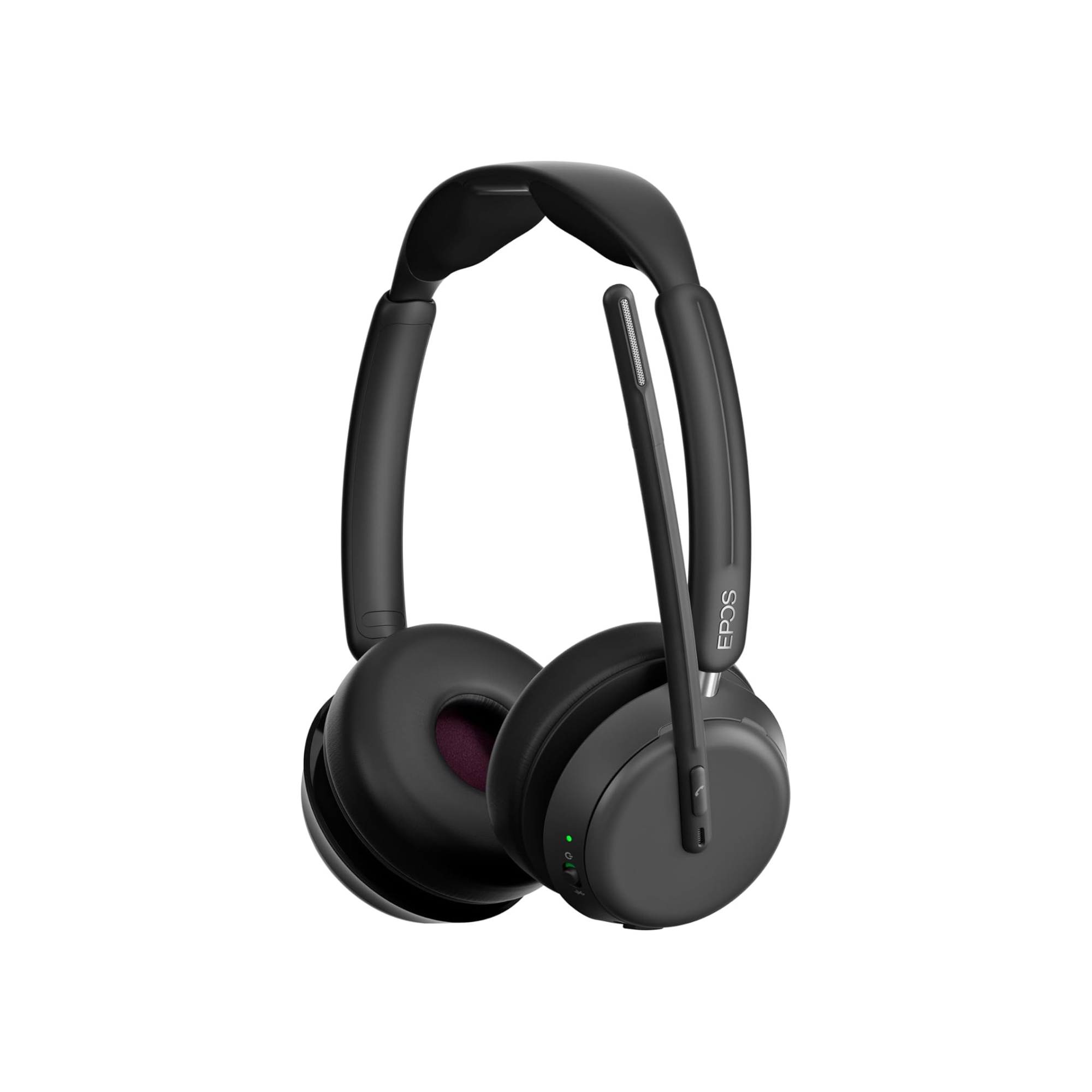If you’re like so many other people, there comes a point in time when you discover that you need a headset for use while on business calls. After all, cradling a phone on your shoulder is not only inefficient but can lead to physical ailments. Using the best office phone headset can improve your posture and productivity.
So, when you begin your search, you’re bound to have questions.
- Who do I contact?
- What brand is best?
- What kind of headset is best for my needs?
- How much do they cost?
- Are they easy to set up?
- Is support available to me if I have issues?
- Should I get a wired or wireless model?
The questions you could have may very well go far beyond these. So what’s the best way to get started to find the best office headset for business phones?
Want to skip the details? Here's our top 5 best headset recommendations for business calls
| Wireless | Adapt 30 | Best for desk phones |
| Wireless | D904 | Best for desk phones and computer applications |
| Wireless | SDW 5016 | Best for multi connectivity to desk phone, computer and mobile phone |
| Wired | D722U | Best for computer applications who want to block out noise |
| Wired | D711 | Best cost effective option for desk phones |
What’s right for you?
To begin, it’s important to know that there isn’t one “best” headset for business, just like there isn't one best car, best eye wear, best home and so on. The best headset for your office phone will be the one that is perfect for your specific needs and preferred wearing style. What’s best for you, might be the worst for someone else. So if you agree with this idea, then it stands to reason that you need to begin by answering a few questions that can help you to pinpoint the business headset.
In order to help shortcut this for you, consider these questions as a starting point to narrow your search.
- you want a wired headset for business, or a wireless business headset?
- What’s your budget?
- Do you want to purchase or rent the headset?
- Are you open to a refurbished headset?
- What’s your wearing preference? Over the head, over the ear or one that allows you to switch between over the head and over the ear (referred to as a convertible headset).
- If over the head style is preferred, do you want to cover one ear or both? Models that cover one ear are referred to as monaural or mono, while models that cover both ears are called binaural or duo and are good if you want to hear better.
- What will you connect this headset for business calls to?
a) Desk phone
b) Computer
c) Desk phone and computer
d) Mobile phone
8. Is having a good warranty an important consideration for you?
9. When considering the company you will buy from, does it matter if the company is reputable with many years of experience and good reviews, or is this not so important?
Wired vs. Wireless
If you can answer these questions, you’ll have a great foundation from which to begin your search for the best headset for business calls. Knowing if you want a wired headset or a wireless business headset is a great place to start. Both types will get the job done, but there is a functional and economic difference between them. A wired headset will cost you less, but a wireless business headset will give you the ability to be wire free and the ability to move away from your desk up to 350 feet while still being accessible. This is something you can’t get from a wired model. So, whether you choose wired or wireless, identifying the best office phone headset for clear calls is a great place to start.
Whats your style?
Over-the-head
How you will wear it really helps as well. A mono, or over the head, single ear headset is very popular, but for those who prefer an over the head style, a binaural, or duo style headset can provide some additional sound and help to block out some of that unwanted background noise you might have in your work environment.
For the ultimate noise blocking in a headset for business, check out the Discover D722 for desk phone connection, and the Discover D722U for connecting to a computer. These headsets fully cover the ears which gives you the ability to hear better and aids in keeping you in the concentration zone without being distracted by what’s going on around you.
If you don’t need so much background noise reduction, then a standard type of headband headset would work fine for you. The Discover D711 for a mono wearing style and the Discover D712 for a duo. These are great examples of headsets designed for over the head wearing, with noise reducing microphones and light enough to wear all day long.
Over-the-ear
Still, you might prefer a headset that’s worn over the ear. This is a popular wearing style for a couple of key reasons. First, some people get headaches when wearing headbands, so an on-ear wearing style is a natural choice. Others don’t like the look of having a headband style of headset. A common perception by those who don’t prefer headband style headsets is they say it makes them feel like they’re working in a drive through at a fast food restaurant. So perception plays a part for many when it comes to selecting the best business headset.
If an on-ear headset is the choice for you, there are typically two ways you can go. First, you can look for a headset that is worn over the ear, with a speaker that rests against it. The other on-ear headset choice is an earpiece that has an ear tip which is inserted into the ear. Both are worn over the ear, but the manner in which the audio is delivered differs. If you decide that an on-ear style is for you and you’re leaning towards a model that has an ear tip, make sure the one you consider has different sizes of ear tips like the Discover D713 as an example. It’s helpful to have different sizes of ear tips available so you can find the size most comfortable for you.Something to keep in mind if you’re planning on looking for an earpiece style headset.
Convertible
Lastly, you might have interest in a model that’s worn over the ear, but can be converted to an over the head wearing style. This is referred to as a “convertible” headset. This type of headset is popular because it meets the needs of those who prefer on-ear as well as over-the head, helping to make a wide scale deployment easy. Convertible headsets are nice too because they allow you to change up the wearing style at will. If your ear gets sore from a long day on the phone, you can quickly remove the earpiece and attach the headband for a different wearing experience.
Making the connection
Finding the best headset for business calls involves knowing what you want to connect the headset to. Some may want to connect to an analog, digital or VOIP desk phone. Others might be searching for the best business headset to connect to a computer for audio and/or video calls.
So you’ll want to fully understand what you intend to connect to today, but also in the near future as well. You don’t want to find yourself back looking for new headsets again because you didn’t take this into account. That consumes more time and costs you more money in the long run. So take a little time to really think through your current needs and what those needs might be in the foreseeable future.
Some headsets are designed to connect to a single device, such as your desk phone. But for those needing versatility, the best headset for business calls on office phones should connect to multiple devices. Naturally, the more devices a headset for business can connect to, the more you should expect to pay.
Dual connectivity headsets generally cost a bit more than those with single connection capability. Take a wireless business headset for example, a model that connects to a desk phone only, is generally less expensive than a model that connects to a desk phone and computer.
The same could be said for a wired headset. In this case, A wired headset for business calls that’s connected to a desk phone requires a separate adapter cable to allow it to operate with a computer via the USB port. This is something to consider when choosing the best office phone headset that suits your setup. Again, dual connection capability being more expensive over single.
By now, you should have established whether you’re interested in a wired or wireless business headset. You should also have an idea of the wearing style you’re looking for, and what you intend to connect your headset to. For those seeking the best office phone headset for their needs, now is the time to begin looking at the finer points.
What’s in a warranty?
All warranties are pretty much the same, right? Not really. Warranties can vary in a number of ways. First, and the most obvious, is the length of the warranty. Some headsets will come with a 90-day warranty, while others will come with a 1-year, 2-year or even 3-year warranty. So, it’s worthwhile to check this out so you know how long you’re covered.
What’s covered?
The second thing is what’s covered in the warranty? Is it an unconditional warranty that includes anything that might happen, or, is it limited to certain occurrences? It’s always a good idea to look into this so you don’t end up with an unexpected surprise when it comes time to use your warranty.
Who pays the shipping?
Is shipping covered by the vendor or are you required to pay? One way? Both ways? A minor detail perhaps, but if you’re responsible for a team of people, the cost of shipping could add up over time.
What product do you receive when exchanged?
When you return a headset, do you get the same headset back? A new one? A refurbished one? Not all vendors have a consistent policy when it comes to this, so it’s worth your time to know in advance.
Advanced replacements or not?
Does the vendor provide advance replacements or are you required to wait while your defective headset is received and processed by the vendor before your replacement is shipped out? Clearly, advance replacements are optimum, but that’s not a service offered by many vendors.
Advance replacements mean that once you’ve notified the company that you have a defective product, they will ship out a replacement same day, prior to receiving your defective headset. Though there’s more risk to the vendor by doing this, advance replacements are a clear sign that the vendor takes customer service seriously.
If the vendor does not offer advance replacements, then the process normally goes this way:
- Notify the vendor that you have an issue and you’re requesting a replacement.
- Vendor provides you with an RMA (Return Materials Authorization)
- The Vendor might pay for the shipping to return the defective unit, but likely not.
- Company ships defective headset to vendor
- Company waits for vendor to receive defective headset
- Vendor receives defective headset and records it as being received
- Vendor places an order to ship out replacement headset
- Customer waits to receive the replacement headset.
The amount of time from start to finish this will take is unknown. Are you on the west coast and the replacement unit is coming from the east coast? That will add time to your wait. How quickly do they receive your defective headset once the package arrives?
How quickly do they process your replacement paperwork? What method of shipping do they use? Expedited? Standard shipping? Postal Service?
The point here is, when possible, ask about advance replacements and whether or not the vendor you’re contracting with offers it. Having a reliable, great sounding headset is important to a lot of people, so minimizing the amount of time being without a headset can be shortened dramatically simply by advance replacements.
Setup and troubleshooting
Another area you’ll want to look into is whether the vendor offers free set up support and free, ongoing troubleshooting assistance.
Though headsets are often viewed as simple, uncomplicated devices, they do have periodic needs for specialized assistance. Whether the need is getting things set up properly initially, or help with an issue that surfaces down the road, especially for those who rely on the best office phone headset for daily use. In either case, it’s preferable to have a good, reliable and capable source to help you out when needed.
Summary
When searching for the best business headset, or best wireless headset for business calls, there are several things that go into finding the right product.
- What do you need a headset to do for you?
- What will you connect it to?
- Are you interested in a wired or wireless headset?
- What is your preferred wearing style?
- What does the vendor offer? Advance replacements, setup and troubleshooting assistance, longer warranty, free shipping?
Only when you can answer these questions will you be able to narrow down your search for the best office phone headset that meets your business needs. With so many headsets to choose from, this exercise will help narrow things down which will make choosing a headset far easier.
If you avoid addressing these questions up front, you run the risk of buying the wrong product which will likely lead to returns, exchanges, dissatisfaction and wasted time and money.
So the bottom line is, while there isn’t one universal best office phone headset, there are many great options depending on your specific needs. There are a lot of choices and only you can decide what’s best for you given your preferences and needs.




